Join Grade 1
at Exupery International School
Join Grade 1
at Exupery International School





- Nurture motivationWe support children's natural curiosity, which lies at the heart of their ability to learn. Our teachers know how to engage the child, always finding to praise, and help solve the unsolvable.
- Teach children how to learnStrive for knowledge is basis to learninghow to learn. At Exupery International School, we do not provide predefined answers but rather help students learn how to think independently and apply knowledge.
- Learning by doingWe pay a lot of attention to developing XXI century skills: our students work in teams, learn how to present talks, master critical thinking, elaborate on interaction and communications skills, apply creative approaches, use management skills and much more.
- Nurture motivationWe support children's natural curiosity, which lies at the heart of their ability to learn. Our teachers know how to engage the child, always finding to praise, and help solve the unsolvable.
- Teach children how to learnStrive for knowledge is basis to learninghow to learn. At Exupery International School, we do not provide predefined answers but rather help students learn how to think independently and apply knowledge.
- Learning by doingWe pay a lot of attention to developing XXI century skills: our students work in teams, learn how to present talks, master critical thinking, elaborate on interaction and communications skills, apply creative approaches, use management skills and much more.
About the primary school programme
-
 Primary School Programme (Grade 1 - 5)The curriculum framework in Grades 1-5 combines the internationally recognized IB Primary Years Programme (PYP) with the Cambridge Primary Curriculum. This blend provides transdisciplinary and inquiry-based approach along with ongoing assessment. English is the language of instruction.
Primary School Programme (Grade 1 - 5)The curriculum framework in Grades 1-5 combines the internationally recognized IB Primary Years Programme (PYP) with the Cambridge Primary Curriculum. This blend provides transdisciplinary and inquiry-based approach along with ongoing assessment. English is the language of instruction. -
 AccreditationExupery International School is a fully authorized International Baccalaureate (IB) school, currently offering the Primary Years Programme (IB PYP) for preschool and primary students and also the International Baccalaureate Diploma Programme (IB DP) in high school. The school is also an accredited International Baccalaureate (IB) World Schools community member.
AccreditationExupery International School is a fully authorized International Baccalaureate (IB) school, currently offering the Primary Years Programme (IB PYP) for preschool and primary students and also the International Baccalaureate Diploma Programme (IB DP) in high school. The school is also an accredited International Baccalaureate (IB) World Schools community member. -
 After-School ActivitiesEIS offers more than 50 different afterschool activities ranging from academic clubs and mastery of communication to creativity, music and arts, health, and sports.
After-School ActivitiesEIS offers more than 50 different afterschool activities ranging from academic clubs and mastery of communication to creativity, music and arts, health, and sports. -
 A caring teamThe school hires the best teachers — seasoned professionals in their field with international experience. They know how to elaborate appreciation of knowledge in a child, teach how to collaborate, set goals and reach them. Each class is powered by the homeroom teacher and an assistant.
A caring teamThe school hires the best teachers — seasoned professionals in their field with international experience. They know how to elaborate appreciation of knowledge in a child, teach how to collaborate, set goals and reach them. Each class is powered by the homeroom teacher and an assistant. -
 Hygge spaceWe have ensured that our students learn in a comfortable and safe environment — the school features spacious halls, cosy classrooms, recreational areas, a perfectly equipped gym, libraries and playgrounds. The warm, family-like atmosphere will help even the shyest child settle in quickly.
Hygge spaceWe have ensured that our students learn in a comfortable and safe environment — the school features spacious halls, cosy classrooms, recreational areas, a perfectly equipped gym, libraries and playgrounds. The warm, family-like atmosphere will help even the shyest child settle in quickly. -
 Healthy and safe environmentWe do our best to make children feel at home and safe and to give their parents rest assured. The school is located in a supervised area; there are learning support team and a nurse. All meals are prepared by the team of the local award-winning restaurant “36.Line” from fresh and nutritious local produce and cater to each student's individual dietary restrictions.
Healthy and safe environmentWe do our best to make children feel at home and safe and to give their parents rest assured. The school is located in a supervised area; there are learning support team and a nurse. All meals are prepared by the team of the local award-winning restaurant “36.Line” from fresh and nutritious local produce and cater to each student's individual dietary restrictions.






- Bridget ClymaHomeroom Teacher
- Emily FrederickHomeroom Teacher
- Katharine BirdHomeroom Teacher
- William SpencerHomeroom Teacher
- Joanna ZnotinsHomeroom Teacher
- Leticia SantanaHomeroom Teacher
- Kseniia BegmaHomeroom Teacher
- Jeļena KiseļovaSubstitute Teacher
6 reasons to choose EIS primary school
-
English as the language of instruction
EIS relies on English as the language of instruction. It is the perfect choice for those who intend to provide their child with an international education - Mother tongue supportWe pay a lot of attention to support consistent fluency in mother tongue. Researches prove that mother tongue is fundamental for learning other languages and acquiring knowledge in all other subjects
-
Creative environment
We shape a creative environment where children are encouraged to express their ideas freely; think out of the box; feel confident and inspired to bring their vision to life; learn faster and more effectively -
State-of-the-art learning technologies
Exupery International School is proactive in implementing the best learning practices and technologies into the learning curve. It is exemplary in the efficient use of IT in education - Health and safetyThe gym and open-air playgrounds naturally help children develop an active and healthy lifestyle. All meals are prepared from fresh and nutritious local produce and cater to each student's individual dietary restrictions
- Individual approach to learningAn individual approach to learning is vital to successfully developing a child's talents in primary school. We treat each child's personality with care and consideration, taking into account their character and interests and building trusting relationships. This fosters a child's growth and provides confidence
-
English as the language of instruction
EIS relies on English as the language of instruction. It is the perfect choice for those who intend to provide their child with an international education - Mother tongue supportWe pay a lot of attention to support consistent fluency in mother tongue. Researches prove that mother tongue is fundamental for learning other languages and acquiring knowledge in all other subjects
-
Creative environment
We shape a creative environment where children are encouraged to express their ideas freely; think out of the box; feel confident and inspired to bring their vision to life; learn faster and more effectively -
State-of-the-art learning technologies
Exupery International School is proactive in implementing the best learning practices and technologies into the learning curve. It is exemplary in the efficient use of IT in education - Health and safetyThe gym and open-air playgrounds naturally help children develop an active and healthy lifestyle. All meals are prepared from fresh and nutritious local produce and cater to each student's individual dietary restrictions
- Individual approach to learningAn individual approach to learning is vital to successfully developing a child's talents in primary school. We treat each child's personality with care and consideration, taking into account their character and interests and building trusting relationships. This fosters a child's growth and provides confidence
Admission process








FACTS ABOUT EXUPERY

Boarding program for high school students
Courses taught in English with strong mother tongue support programs in Latvian, Russian, and French
Over 360 students and 100 staff representing over 35 nationalities
All-inclusive, high-quality dining, including breakfast, lunch and two snacks
An extensive after-school program
Award-winning, purpose-built facilities with state-of-the-art equipment
Bus service twice a day









The International Baccalaureate (IB) learner profile describes a broad range of human capacities and responsibilities that go beyond academic success. They imply a commitment to help all members of the school community learn to respect themselves, others and the world around them.
Each of the IB’s programmes is committed to the development of students according to the IB learner profile. The profile aims to develop learners into inquirers, knowledgeable people, thinkers, communicators, principled, open-minded, caring, risk-takers, balanced, reflective.
Each year, classes work through a cycle of six units of inquiry. The units may be focused on science, social studies, language, PSPE or arts. In addition, many subject areas of the curriculum intertwine units of inquiry and single subject teachers often work with homeroom teachers to create a transdisciplinary approach to learning. This means that different subject areas are used to promote the students’ understanding of the unit’s central idea. Every unit has a central idea which is a statement that encapsulates the desired learning, within the broad themes of Who We Are, How We Organise Ourselves, How We Express Ourselves, Sharing the Planet, Where We are Place and Time, and How the World Works.
The International Baccalaureate (IB) learner profile describes a broad range of human capacities and responsibilities that go beyond academic success. They imply a commitment to help all members of the school community learn to respect themselves, others and the world around them.
Each of the IB’s programmes is committed to the development of students according to the IB learner profile. The profile aims to develop learners into inquirers, knowledgeable people, thinkers, communicators, principled, open-minded, caring, risk-takers, balanced, reflective.
Each year, classes work through a cycle of six units of inquiry. The units may be focused on science, social studies, language, PSPE or arts. In addition, many subject areas of the curriculum intertwine units of inquiry and single subject teachers often work with homeroom teachers to create a transdisciplinary approach to learning. This means that different subject areas are used to promote the students’ understanding of the unit’s central idea. Every unit has a central idea which is a statement that encapsulates the desired learning, within the broad themes of Who We Are, How We Organise Ourselves, How We Express Ourselves, Sharing the Planet, Where We are Place and Time, and How the World Works.













